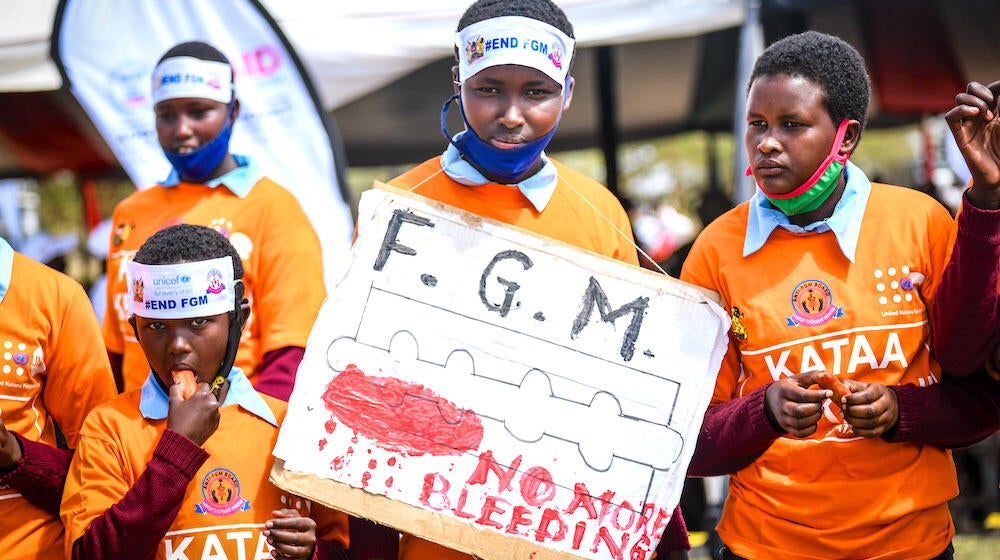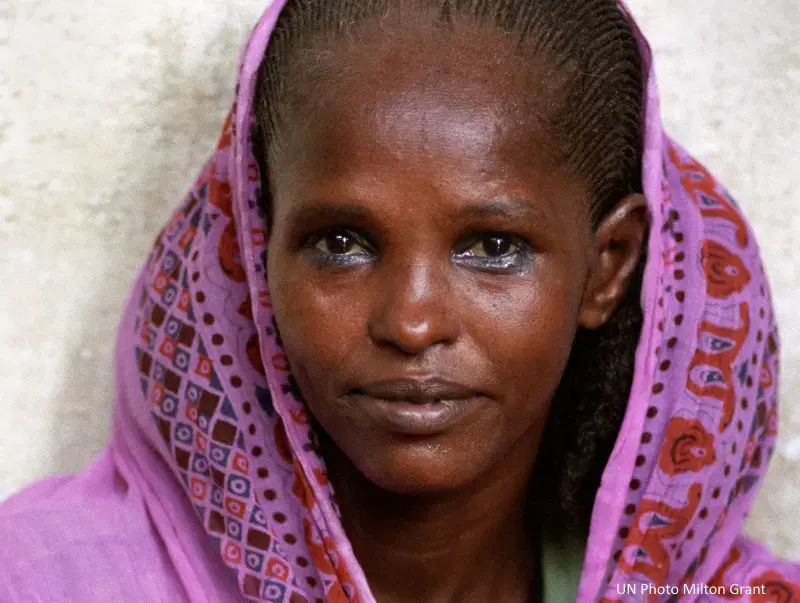Joint Statement by UNFPA Executive Director Dr. Natalia Kanem and UNICEF Executive Director Catherine Russell on the International Day of Zero Tolerance for Female Genital Mutilation
NEW YORK, 6 February 2023 – This year, 4.3 million girls are at risk of female genital mutilation, according to the latest UNFPA estimates. This number is projected to reach 4.6 million by 2030, as conflict, climate change, rising poverty and inequality continue to hinder efforts to transform gender and social norms that underpin this harmful practice and disrupt programmes that help protect girls.
Female genital mutilation (FGM) violates the rights of women and girls and limits their opportunities for the future in health, education and income. Rooted in gender inequality and power imbalances, it is an act of gender-based violence that harms girls' bodies, dims their futures, and endangers their lives.
But we know that change is possible. With just eight years left to reach the global target of eliminating FGM, only collective and well-funded action across a diverse group of stakeholders can end this harmful practice.
Changing gender and social norms that encourage FGM is critical. Men and boys are powerful allies in the effort. Increasingly they are challenging power dynamics within their families and communities and supporting women and girls as agents of change.
The UNFPA-UNICEF global Joint Programme on the Elimination of FGM has supported over 3,000 initiatives within the last five years where men and boys actively advocate to bring an end to the practice.
We are witnessing significant opposition from men and boys to FGM in many countries. In Ethiopia, for example – a country with one of the highest rates of FGM globally – male opposition to the practice is 87 per cent, according to a recent UNICEF analysis.
This year, on the International Day of Zero Tolerance for FGM, we call on the global community to:
● Partner with and engage men and boys to shift unequal power relations and challenge the attitudes and behaviours caused by gender inequality that lead to FGM.
● Integrate gender-transformative approaches and changing social norms into anti-FGM programmes.
● Invest in national-level policies and legislation protecting the rights of girls and women, including the development of national action plans to end FGM.
Today is a reminder of the urgent need for even more targeted and concerted efforts to turn our shared goal of ending FGM into a reality. We must work together with all stakeholders - including men and boys - to protect the millions of girls and women at risk and consign this practice to history.
###
Notes to Editors
About the UNFPA–UNICEF Joint Programme
The UNFPA–UNICEF Joint Programme on the Elimination of Female Genital Mutilation: Delivering the Global Promise works to eliminate female genital mutilation through interventions in 17 countries where the practice is prevalent. The programme creates opportunities for girls and women to realize their rights in health, education, income and equality to help end the power imbalances that underpin this harmful practice.
For further information, please contact:
Eddie Wright, UNFPA New York, Tel: +1 917 831 2974 ewright@unfpa.org
Helen Wylie, UNICEF New York, Tel: +1 917 244 2215, hwylie@unicef.org
About UNFPA
UNFPA is the United Nations sexual and reproductive health agency. UNFPA's mission is to deliver a world where every pregnancy is wanted, every childbirth is safe and every young person's potential is fulfilled. UNFPA calls for the realization of reproductive rights for all and supports access to a wide range of sexual and reproductive health services.
For more information about UNFPA and its work visit: www.unfpa.org
Follow UNFPA on Twitter, Facebook, Instagram and YouTube
About UNICEF
UNICEF works in some of the world’s toughest places, to reach the world’s most disadvantaged children. Across more than 190 countries and territories, we work for every child, everywhere, to build a better world for everyone.
For more information about UNICEF and its work for children visit www.unicef.org
Follow UNICEF on Twitter, Facebook, Instagram and YouTube



